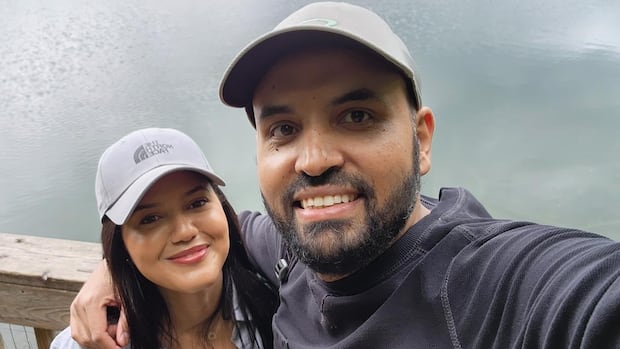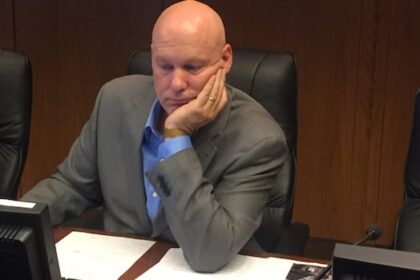News (Embed only)An Ottawa resident and survivor of a deadly funicular crash in Lisbon last month says she’s “shocked” by the findings of a recent report on the incident, and is calling for greater accountability from Portuguese officials. Hind Iguernane lost her husband Aziz Benharref in Sept. 3 disaster that killed 16Joseph Tunney · CBC News · Posted: Oct 29, 2025 4:00 AM EDT | Last Updated: 1 hour agoListen to this articleEstimated 4 minutesAziz Benharref, left, and Hind Iguernane, right, were in the funicular car that derailed and crashed in Lisbon on Sept. 3. Benharref died in the crash, and Iguernane was injured. (Submitted by Ayoub Sajjaa)An Ottawa resident and survivor of a deadly funicular crash in Lisbon last month says she’s shocked by the findings of a recent report on the incident and is calling for greater accountability from Portuguese officials. Hind Iguernane and her husband Aziz Benharref were among 27 passengers on the tram that derailed Sept. 3 when its cable snapped, causing the car to descend rapidly until it crashed into a building. Benharref was among the 16 people who died in the incident.”Losing my husband in such a tragedy completely broke my world,” Iguernane told CBC over Zoom. “Some days I manage to be OK, but other days are much harder.”Now recovering with her parents in Morocco, Iguernane has vivid memories of the tragedy, including the heavy smoke that filled the air with a scent similar to gunpowder.”I still can remember the smell,” she said on the brink of tears. Report points to cableThis month, Portugal’s Office for the Prevention and Investigation of Accidents in Civil Aviation and Rail published a preliminary report detailing a litany of issues with the railway, a popular attraction called Ascensor da Gloria, or the Gloria Lift. Among the report’s findings: One of Lisbon’s public transport companies, Carris, had used a cable that was “not certified for use in installations for the transport of people.”The report stops short of determining whether the cable was “relevant to the accident or not,” however.The report also found that the car’s braking system was ineffective, despite both the manual and automatic brakes being applied before the crash. Nor did Carris have any record showing the emergency brake had been tested in a situation where the cable had failed. Several Carris technicians and employees associated with the funicular said “there was a perception that the safety of the system relied entirely on the cable,” according to the report.”I was in shock,” Iguernane said. “The report made it clear this was not an accident. It was a result of serious negligence.”The report isn’t intended to determine liability or establish blame, the investigative body said. A final report is expected next year. Last week, the board of directors of Carris, including its chairman and president Pedro de Brito Bogas, resigned en masse, according to a news release release from local officials.”I know that some people resigned, but for me this is not enough,” Iguernane said. “They need to be held legally accountable for their decision.”‘Losing my husband in such a tragedy completely broke my world,’ Iguernane told CBC. (Submitted by Youness Iguernane)Iguernane suffered a fractured hip in the crash and has been unable to walk. Her shoulder was also fractured. She said she doesn’t require surgery, but she’s been ordered to stay in bed for three months. As for her eventual return to Ottawa, she said she’s waiting for the green light from her doctor.Family seeking accountabilityHer brother Youness Iguernane, who lives in Orléans, said the family is seeking greater accountability and transparency from Portuguese officials.He said Benharref’s relatives are still awaiting a coroner’s report, and said no one from the Portuguese government has been in touch with his sister since the crash.”We don’t need the money,” he said. “We need the words, nice words — something.”Hind Iguernane said she’ll never accept Benharref’s death as an accident, adding the family plans to take legal action but hasn’t contacted a lawyer yet.She said she still remembers the brakeman working to apply the car’s manual brake as it hurtled down the slope, with little effect.”For me this wasn’t just bad luck, it was completely preventable,” she said. “I was just asking myself, how could something like this happen in 2025 in the centre of Lisbon? And how are they capable of promoting it as the symbol of the city and for the whole country?”ABOUT THE AUTHORJoseph Tunney is a reporter for CBC News in Ottawa. He can be reached at joe.tunney@cbc.ca
Wednesday, 4 Feb 2026
Canada – The Illusion
Search
Have an existing account?
Sign In
© 2022 Foxiz News Network. Ruby Design Company. All Rights Reserved.
You May also Like
- More News:
- history
- Standing Bear Network
- John Gonzalez
- ᐊᔭᐦᑊ ayahp — It happened
- Creation
- Beneath the Water
- Olympic gold medal
- Jim Thorpe
- type O blood
- the bringer of life
- Raven
- Wás’agi
- NoiseCat
- 'Sugarcane'
- The rivers still sing
- ᑲᓂᐸᐏᐟ ᒪᐢᑿ
- ᐅᑳᐤ okâw — We remember
- ᐊᓂᓈᐯᐃᐧᐣ aninâpêwin — Truth
- This is what it means to be human.
- Nokoma











